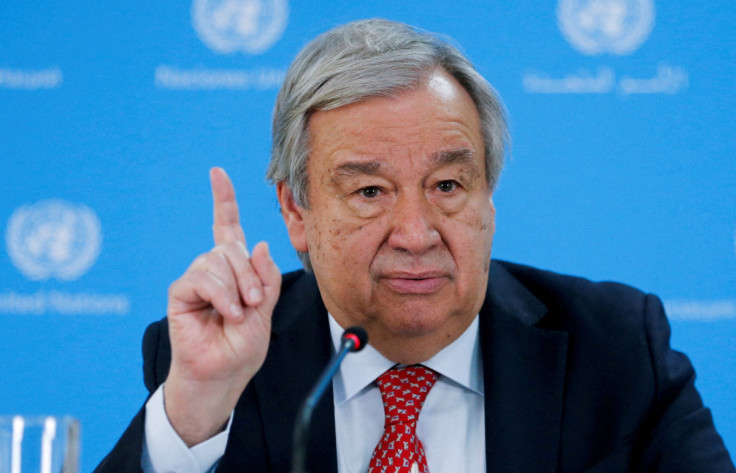'Era of global boiling is here,' claims UN chief as high temperatures scorch earth
The statement comes after the world saw its hottest three weeks on record, according to experts.

The United Nations secretary general, António Guterres, has time and again warned the world of the catastrophic consequences of global warming. In his latest warning he has called for radical action if we wish to avoid those consequences.
In a press conference held on Thursday, the UN chief said that "the era of global boiling has arrived," as several European countries erupt into flames and July is proving to be one of the hottest months recorded so far.
"Climate change is here. It is terrifying. And it is just the beginning," he added. "It is still possible to limit global temperature rise to 1.5°C [above pre-industrial levels], and avoid the very worst of climate change. But only with dramatic, immediate climate action," he said.
The last three weeks have been the hottest on record, and July is on its way to becoming the hottest month ever recorded.
According to the World Meteorological Organisation (WMO), global temperatures have broken all records this month. Guterres also highlighted how parts of North America, Asia, Africa, and Europe have been seeing their worst summers.
"All this is entirely consistent with predictions and repeated warnings. The only surprise is the speed of the change," he warned.
He urged world leaders to take immediate action as the world becomes more and more uninhabitable due to unclean air, water, food, and unbearable heat. He has made it clear that we do not have more time and that swift action is needed now.
This is not the first time that the UN chief has issued such a stark warning. Last year, he warned that climate change has put half of humanity in the danger zone.
From North America to Europe and Asia, temperatures have reached new heights. Heatwaves and wildfires have been reported across the globe. No part of the world has been left untouched by the effects of global warming.
Guterres went to the extent of saying that the world is left with no option but to do something immediately. "We have a choice. Collective action or collective suicide. It is in our hands," he added.
July has already seen:
— António Guterres (@antonioguterres) July 27, 2023
The hottest three-week period ever recorded.
The three hottest days on record.
The highest-ever ocean temperatures for this time of year.
It is still possible to avoid the very worst of climate change, but only with dramatic, immediate #ClimateAction.
Drought, floods, wildfires, extreme temperatures, and marine heatwaves are all being reported simultaneously in different parts of the world. Two million people have already been killed by extreme weather, climate, and water-related events since 1970. No country or region has remained immune from rising global temperatures.
It is said that Earth's average temperature will hit the 1.5ºC threshold around 2030, a decade earlier than projected only three years ago. The UN has urged the world to urgently take steps to stop global warming.
The planet is already 1.2°C warmer than in pre-industrial times. In order to limit global warming to 1.5ºC, greenhouse gas emissions must peak before 2025 at the latest and decline by 43 per cent by 2030.
Last month, a UN climate report found that global sea levels are rising at more than double the pace they did in the first decade of measurements in 1993–2002 and hit a new record high last year.
Researchers from the University of Maryland found that forest fires fuelled by climate change have led to the loss of a significant amount of forest cover. In 2021, forest fires caused 9.3 million hectares of tree cover loss.
"This record-breaking loss was due in part to prolonged heatwaves that would have been practically impossible without human-induced climate change," said the study. Scientists have predicted more episodes of extreme weather if timely action is not taken.
Rising sea levels have forced communities to relocate, and protracted droughts have put more countries at risk of famine. The years between 2011 and 2020 have been the warmest decade on record.
© Copyright IBTimes 2024. All rights reserved.






